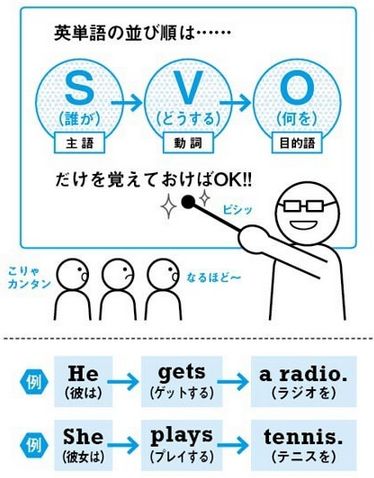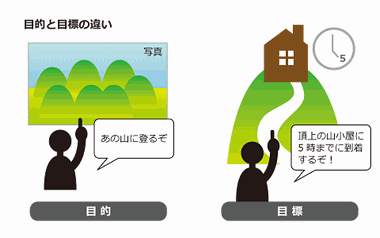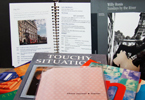
Congratulations! If you are reading this, you have probably decided to study English. Whether it be for the first time in your life or whether you have been studying for many years, you are probably asking yourself questions like, “Where do I start?”; “How should I study?”; “How can I get better?” and so on. This guide is here to help you answer these types of questions. Of course, it is not an all comprehensive list and everyone has their own ways of learning that works best for them; however, here is a compilation of helpful hints to help you master the art of speaking English faster and more effectively.
(Shunsuke: added Japanese as a test)
Congratulations! この文章を読んでいるということは、英語を学ぼうと思われたということですよね。
今回、英語を勉強しようと思ったのがはじめてなのか、今までもずっと学んできたかは別にして、きっとあなたは、「どこからはじめたらいいんだろう?」あるいは「どのように勉強したらいいんだろう?」「どうしたらより良くできるだろう?」なんて自問しているかもしれません。このガイドは、そんなあなたにこのような質問にこたえるために作成しました。もちろん、このガイドが全てを網羅しているわけではありませんし、学び方は人それぞれ。ですが、本ガイドは英会話をより早くそしてより効率的に学ぶためのヒントとなることでしょう!

Vocabulary / Words
Having a strong vocabulary is important throughout all parts of speaking English and really creates a strong foundation for your speaking skills. If you don’t know a word it can create problems in other areas for you as well – listening, reading, speaking, etc. Your communication in English can really become limited by the amount of vocabulary that you know. So, we recommend focusing on building your vocabulary.
Flashcards and scheduled review
Yes, flashcards. We can hear everyone groaning at the sound of this word, but it is one method of building a strong vocabulary bank. You don’t have to buy fancy flashcards, of course you can if you want, but all you need is a pack of index cards & a good pair of scissors. Just cut the index cards into 4 pieces and you will have more than enough little cards to help you start memorizing new words.
Secondly, we recommend sticking to a scheduled review of your flashcards. You can review them daily, every other day, every week, or even monthly (although that is stretching it a little bit). Regardless, try to set a time of day and a routine schedule that you can commit from 5 to 30 minutes of review time. And remember, it is usually best to do many small reviews more frequently, than it is to do one long session less frequently. For example, it is better to review vocabulary every day a week for 15 minutes than one day a week for 2 hours.
A note about direct translations
You may be surprised to hear that not all words translate easily from Japanese to English or visa versa. For example, let’s look at the phrase “コーヒーを入れる” which translates to “make coffee” in English. If you look up 入れる, you may find that it translates to “put into”. However, it wouldn’t make sense to a native English speaker if you said “put into coffee”. If you said that, they would think you meant put some cream or sugar into your coffee. So, it’s important to be flexible when you learn new words & understand that they don’t all translate nicely. Just try to imagine the situation, how it feels & you should be able to understand the general meaning even if it doesn’t translate perfectly into your native language. Therefore, for this reason, take care when using your dictionary. You will often be given a number of possible words that translate into the word you want, but not each will work correctly if they don’t portray the correct nuance that you want in your sentence.

Reading
Reading is another great way to build your vocabulary. Not only does it introduce new vocabulary words to you, but you will also get to see the words used in action. This is just as important as studying flashcards. Seeing and understanding how words are used in a sentence really helps to give you a deeper understanding of vocabulary and it will also help you to remember them easier. When you can mentally attach a word to something that you read in the past it will be much easier to remember than just from memorizing a word from a flashcard. If you are new to English it may be difficult to read at this point, don’t worry you will be able to in the future, you just need to first build your base vocabulary list with your flashcards and then you can graduate on to reading. And don’t worry if you don’t know every word when reading. You can try to figure out the meaning of unknown words by using the context. Remember, the more you practice reading, the better you will become at it.
Grammar
At “b” we find that many of our members understand the grammar & it’s meaning, but they often struggle with accuracy with using the grammar while speaking. If you feel that you know the grammar, but just find you make many grammar mistakes while speaking, we have a few tips for you.
S-V-O
First we recommend staying focused on your basic sentence structure. In English it is SVO, or Subject – Verb – Object. Often times in Japanese you can omit the Subject, but that really isn’t the case in English. In order for native English speakers to understand you, you really need to use the subject or else they may have a hard time understanding what you are talking about. So, at a minimum, try to make sure your sentences include these three points and in the correct order and it will form a strong foundation for you going forward.

Talking vs. Thinking speed
For people who understand the grammar, but they really struggle with accuracy, this could be one of the areas that you might want to work on. In your mind you may be thinking, “I have SO MUCH that I want to say, and I want to say it quickly, like a native speaker.” and this is great! It shows you are enthusiastic about the language and your passion is clearly evident. However, at the expense of speed, often times peoples’ grammar accuracy gets lost. The general meaning of what you are trying to say is heard & can be understood, but it may not be entirely grammatically correct. If this is something that you struggle with, we recommend slowing it down. Try to make every word count. This gives your mind time to catch up with your mouth. If you give yourself a little more time, hopefully your accuracy will improve & you will be able to more clearly understand where your mistakes are being made when your lesson partner corrects you.
Now, many people are on the opposite side of the spectrum. They are thinking TOO much and spending too much time translating in their head. This unfortunately, also makes it difficult for native English speakers to understand you since the time is too long between words or sentences that we can’t remember what it is that you wanted to say. So, if you are in this category, we encourage you to “just say it”. Even if it is wrong, that’s ok! You probably have an idea of how to say it, but you aren’t sure if it is 100% right, that’s ok! Give yourself 10 – 20 seconds to say it and if you can’t get it out by then, just say what you think it should be. Then your lesson partner will help you to see how it’s done, if there were any mistakes.
Pronunciation
English pronunciation is often very difficult for Japanese speakers because many sounds in English do not occur in Japanese. If you want to improve your pronunciation one thing you can try is reading out loud at home. This will help you to build the muscles in your mouth to be able to say the words. You could also try singing your favorite songs in English. This is also great because you can hear how the words are spoken by the singer.
Furthermore, sometimes you can google the definition of a word online and they will give you the definition and a recording of how the word is pronounced. You can also use that to practice the individual pronunciation of words. Just google, [definition of + “word”].
Lastly, there is a very interesting website, http://www.uiowa.edu/~acadtech/phonetics/# , that is sponsored by the University of Iowa, which gives a visual representation of the inside of a mouth while certain English sounds are spoken. It is an interactive tool and it’s pretty cool and fun to work with, so please check it out!
Speaking
Some of you may say, “I love my lessons, but I just don’t know what to talk about. I get so nervous, so I’m not sure what to say.” One thing we recommend is coming to your lesson prepared with something to talk about. It could be about what you did that day, what you will do next weekend, your travel plans, shopping, meeting an old friend, something interesting in the news, a sports event, an interesting cultural topic, your hobby, what food you made for dinner, your work day, your children, anything! However, keep in mind your skill level when choosing a topic. If you are a beginner, you may feel that talking about your political opinion may be a bit difficult at this stage. Ideally topics should be at your skill level, but offer a little challenge for you and an opportunity to learn new words & phrases.
Some of our members also find it easy to read their lesson partner’s blog topic before coming to the lesson. This can provide you with a springboard for conversation too. Please check out our blog topics here: https://www.b-cafe.net/casting-blog?grid=gnSub We also have a movie blog page if you like to talk about movies: https://www.b-cafe.net/cinema?grid=gnSub
Another way, actually, to improve your speaking is to keep a journal. The act of writing what you are thinking is using the same mental processes as speaking, only on a slower time frame. So, this can also help you. The key point though with writing is to ensure you have someone to check your writing. You can always bring your journal in during your lesson and we will check it, but please keep in mind that it takes some time to check blogs & journals and it may end up using all of your lesson time. So, if you don’t want to spend your entire lesson checking your journal, just choose a few sentences / entries for us to check & then we will move on with your regular lesson. There are also websites such as http://lang-8.com/ which you can use for journal correction. On this website you can write a journal entry in English and a native speaker will correct it for you for free! Of course, you should help them with their Japanese too.
Finally, try to speak as much as possible during your lesson, and in English. We understand for some, it is very difficult to speak in English and at times may revert back to Japanese. But we really want to encourage you to try your best to speak English. And if you don’t know the word in English, you can tell us in Japanese and we will look it up for you. Of course, that’s not to say that you can’t speak Japanese, we understand at times you just have to say it in Japanese. That’s ok too, but let’s do our best to use English.
Listening
For those of you who really want to work on your listening skills, you are in luck! There are actually many things you can do to improve your listening skills and you don’t even need your lesson partner. One of the best ways to improve your listening is to practice transcribing conversations. Many English textbooks and resources nowadays come with CDs & scripts to help you learn English. Why not try to take it a step further? You can play the CD & then try to write down what you hear – word by word. Of course you will have to stop and rewind often, but it will train your ears how to actively listen in English. Then, when you are finished check your accuracy against the script.
Listening in your native language is very different from listening in English. When you listen in your native language it is passive. You don’t even have to think about it. Your brain automatically knows what they are saying. But, when you listen in another language you have to “turn your ears on”. You have to actively listen and try to pick up the words you hear. Transcribing helps you to practice this skill.
If you don’t want to buy a CD & script, you can also find various English learning services on iTunes. There are free and non-free podcasts which can be downloaded right to your mobile device. This is great for long commute times!
Another idea is to listen to the news, movies, or tv dramas first in Japanese. Then, once you know what the story is about, you can listen to it in English. See how much of the story you can understand. Lastly, there are various radio broadcasts in English online. Some of our favorites are National Public Radio www.npr.org or British Broadcasting Corporation http://www.bbc.co.uk/radio/ .
Finally, you may not always understand each and every word that you hear. That’s ok. Many times the words we don’t understand are just prepositions or vocal inflections that don’t take on a real significant meaning. So, you can still get the jist of what the speaker is saying. Just try to listen for the words that you DO know and take a guess at the meaning. And when you hear a word you don’t know, don’t stop listening and think about the word you don’t know, keep listening to the speaker and stay with their sentence. You may understand something later in the sentence which will help you to understand. But if you stop listening and just think about that one word that you didn’t know, you probably won’t get an idea of what was really said.
Confidence
If you are terrified of speaking in English and feel bad every time you make a mistake, you may suffer from low confidence. This is most probably a result of just not being used to speaking English and wanting to do really well. You may by asking, “why is my desire to do really well part of my confidence issue?”. Well, if you have a very strong desire to be good at English and you may be setting really high expectations for yourself, but your skills may not match those expectations for yourself. If this is the case, then when you fail yourself you ultimately become disappointed in yourself and your ability to speak English. This can lead to low confidence. So, of course wanting to do well is great and there is no issue with that, but there is an issue with setting unrealistic expectations for yourself – especially if you are a beginner.
So, what is needed is a change of attitude towards your learning. Here are a couple of points to think about.
1. Focus on your learning and not your performance. If you consistently think about how “bad” your speaking is, it will be difficult to improve. But if you focus on learning something new you can forget about your performance and your fear of making mistakes will go away too.
2. Understand your current English ability and be ok with that.
3. Set realistic expectations for yourself based on the things you have already learned, not on the things that you haven’t learned yet. You can’t know the things you haven’t learned, but expect yourself to know the things you have learned. And if there is something that you have learned but you’re not comfortable with it, work on it. Ask your lesson partner for more help or do more practice using that grammar point or vocabulary word. By really focusing on a point that you know you are weak in, you will eventually come to be really good at it.
4. Don’t worry about what your lesson partner thinks of your speaking. The role of the lesson partner is to help you learn English in a way that makes you feel comfortable. We are not here to judge your speaking, but to help you improve. Everyone makes mistakes and we enjoy working with you to help you improve. Most lesson partners average about 5 to 6 lessons per day. They speak with people who have absolutely no knowledge of English to those that are nearly native speakers. So, chances are, your level of speaking is nothing new to the lesson partner and they are completely ok with that and able to help you wherever you are at.
5. Try to relax and have fun! This is your time.
Motivation
Usually when you start something new you are so excited to get started. Your motivation level is high. You enjoy coming to your lessons, and you may even study every day. You might like to watch movies in English and so forth. You may even decorate your textbook with cute little stickers. But sometimes, after a few months or a few years of studying English you might start to feel a little sluggish. You may even feel like throwing away that book with all the cute little stickers. You ask yourself, “Why am I doing this?”. You say to yourself, “It’s too hard, I can’t do it.”. Or you might think, “I’m just not as interested in speaking English as I used to be.” At this point you may suffer from a lack of motivation. Well, here are some ideas to help you keep your interest level high and keep you on track.
Setting Goals
As with any challenge in life, it’s important to set goals and reward yourself regularly for reaching them. We recommend setting small targets. Small goals are much easier to work towards than one big goal. Here are some ideas for small goals.

– Learn X new words every day & review them on the weekends
– Unlearn one typical mistake before your next lesson
– Study X minutes every day (set a time; place)
– Finish your textbook before your lessons expire
– Reach X TOEIC score by a certain date
– Read a little bit of English every day, even if it is only one sentence, for a month
– Ask your lesson partner one question during your lesson.
And then when you reach your target, reward yourself! Here are some ideas for rewards.
– Treat yourself to an hour massage.
– Go to the movies
– Buy some nice flowers
– Go out to dinner
– Celebrate with a friend
– Get a manicure or pedicure
– Treat yourself for a nice walk outside
– Bake some yummy food
It could be anything. The point is to set small attainable targets within certain timeframes and then reward yourself when you reach them. This will give you something to work towards and keep you motivated at the same time.
Another way to keep your motivation high is to switch up what and how you study. Perhaps you have a study schedule and pattern that seems to work well for you. But, if that schedule starts to feel a little boring, it may be time to shake things up a bit. So, take a break from your normal routine, but replace it with a different form of studying. For example, maybe you just review 10 vocabulary words every day, but are starting to become bored with it. Instead, try reading a little bit in English every day for a few weeks. Or, maybe focus on watching a few movies in English instead. Anything is ok, the point is to keep rotation the aspects of English that you are working on in order to keep your interest. You don’t want your studies to become stale or else chances are you will lose your motivation.
Miscellaneous Study Points
Finally, there are a few points that we would like to close with. First of all expect to work hard and expect to go through emotional ups and downs. Some days you will speak English beautifully and everything will just be so clear and other days your brain will seem like it completely stopped working. Surprisingly, that’s normal! Many people experience that. Just don’t give up and be easy on yourself. Tell yourself that you will do better next time.
English grammar has many grammatical rules & many exceptions to those rules. Many times members ask why there are exceptions and why the rules are set the way they are. And often times the answer is, “just because it is the rule.” So, please keep that in mind.
Lastly, the time you spend studying outside of your lessons is just as important, if not more important, than the lessons themselves. Many people feel too busy to study outside of their lessons and your lesson time may be the only time you get to work on your English. This is understandable. But if you can squeeze in even 5 minutes of study time every now and then it will greatly help your English speaking.
We hope that you found these study tips to be helpful. If you have any questions, or even have an idea that you would like to add to the list, please let us know, we’d love to hear about it and share it with others!
Websites:
http://www.ego4u.com/ (general esl website)
http://www.uiowa.edu/~acadtech/phonetics/# (pronunciation)
http://www.eslgold.com/ (general esl website)
http://www.eslgold.com/business/useful_expressions.html (business expressions)
http://www.learnenglishfeelgood.com/travelenglish/ (travel english)
http://www.usingenglish.com/esl/learning-english.html (advice on learning English)
– http://www.esl-lab.com/index.htm (listening)
Study Tools:
– Worksheets
– Self Level Check / Interview Level Check
– Useful Expressions – study page
– Topic specific vocabulary lists (shopping, medical, travel, phone
– Days of the week, Months, Dates
– Study chart (basic grammar)
– Verb flash cards – pictures, sample sentences, different ways to use
– Prepositions
– Ways to use the word “go”
– WH Questions & quiz
– Adjectives – pictures, sample sentences, different ways to use
– This, That, These, Those – pictures showing locations
– Plural vs. Singular – pictures
– Irregular past tense verbs
– Vocabulary quizzes













